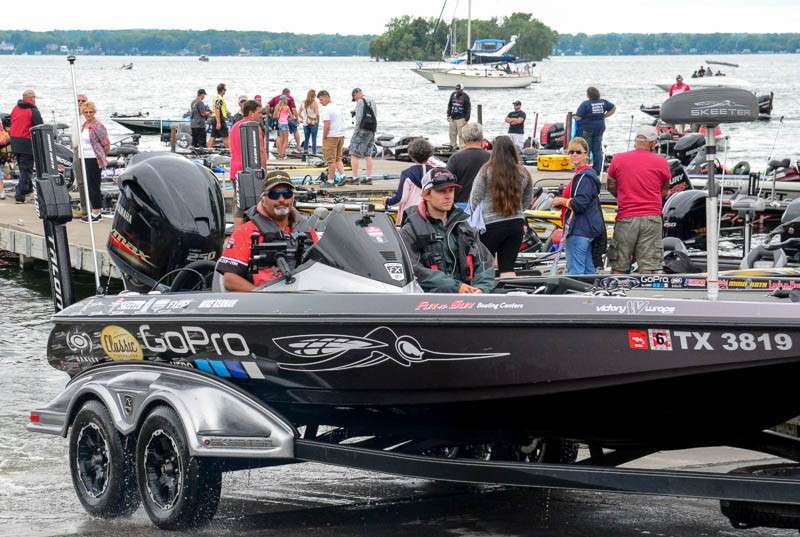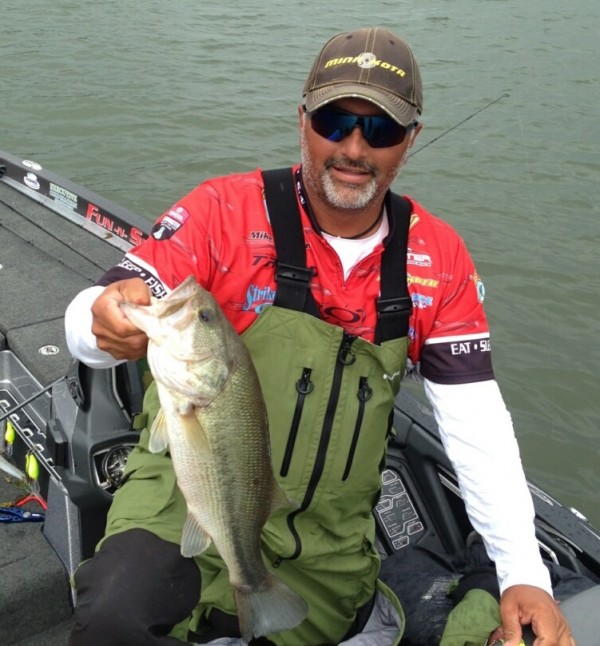
Editor’s note: Mike Kernan is entering his second season as an Elite pro.
Tax season is here, and now is the time to get all your income and expenses organized. I received my CPA designation in 2001 after getting an accounting degree from Texas A&M, so I have always tried to stay on top of the accounting for my businesses. This year, I have many more fishing expenses as I pursued the Bassmaster Elite Series. But the good foundation that I put together over the years sure has made it much easier. I thought I would share that foundation with you in the hopes of making your tax season easier.
The IRS obviously requires that you maintain records. For those of you pursuing your tournament fishing dreams, it would be a good idea to have a credit card you use only for fishing expenses. If you have a nice stable of sponsors, you may want to maintain a separate bank account. If your fishing business is set up as a corporation or an LLC, a bank account is even a better idea. But each state can require additional forms filing under those entity types, so you will need to choose wisely, and maybe even seek the advice of a professional.
At the beginning of each year, I make sure I buy the annual B.A.S.S. Daily Planner. It is basically a calendar bound in a hardback, and it is a great tool to record your expenses. I enter every expense in that book throughout the year. At the end of the year, I always run through my credit card statements and compare them to my entries in the Planner to make sure I did not overlook anything.
 Are you aware that an entry into a log book for an expense will many times be sufficient for the IRS? Especially when those expenses can be validated by matching it to a transaction on your credit card statement. But as a precaution, I try to throw all my receipts into a folder labeled ‘Expenses 2014’ or the appropriate year. You definitely want to save all your receipts for large expenses. A good rule of thumb is basically anything over $75 – save the receipt.
Are you aware that an entry into a log book for an expense will many times be sufficient for the IRS? Especially when those expenses can be validated by matching it to a transaction on your credit card statement. But as a precaution, I try to throw all my receipts into a folder labeled ‘Expenses 2014’ or the appropriate year. You definitely want to save all your receipts for large expenses. A good rule of thumb is basically anything over $75 – save the receipt.
After I have compared the Planner to my credit card records, I then put all the expenses in a spreadsheet. I add the expense type to each. Those types could include lodging, boat fuel, tackle, repairs and maintenance, insurance, depreciation, entry fees, licenses and advertising. The IRS lets you break it out any way you prefer on your Schedule C, your statement of income and expenses for your business on your Federal Tax Return.
I have always favored tracking mileage and taking the expense related to my vehicle through this mileage, multiplied by the current IRS mileage rate. When you use mileage, you pull an auditor out of tracking vehicle expenses. Make sure you write in your Planner where your trip starts and ends. But keep your boat fuel separate from your truck fuel. Boat fuel is a direct expense and is not scrutinized in the same manner as your tow vehicle.
Tracking income is the most important part of your taxes. If you under report income, it can be considered a criminal offense. If you over report expenses, you get a slap on your hand, pay back interest and underpaid taxes. There is no benefit to getting either incorrect, but the penalty of unreported income is much more severe. Even if you do not get a 1099 for income from some parties, REPORT ALL YOUR INCOME! There is nothing more important that I can share with you.
Once my records are in good shape, I file using TurboTax. It really is an easy program to use. But I am going to encourage you to spend the additional $35 or so to pay for legal representation using their legal staff. You just add it to your filing fee. The reason this is so important is that IRS officials look at an audit very differently when you have legal representation. It increases your ability to resolve disputes in your favor tenfold. It is never in your best interest to talk directly with someone from the IRS. I have been all the way to Tax Court to learn this, and it is not a winning proposition.
If you keep good records, your tax season can be very uneventful. I would rather be sight fishing in March, than worrying about taxes!
Good luck with your return, and good fishing!





